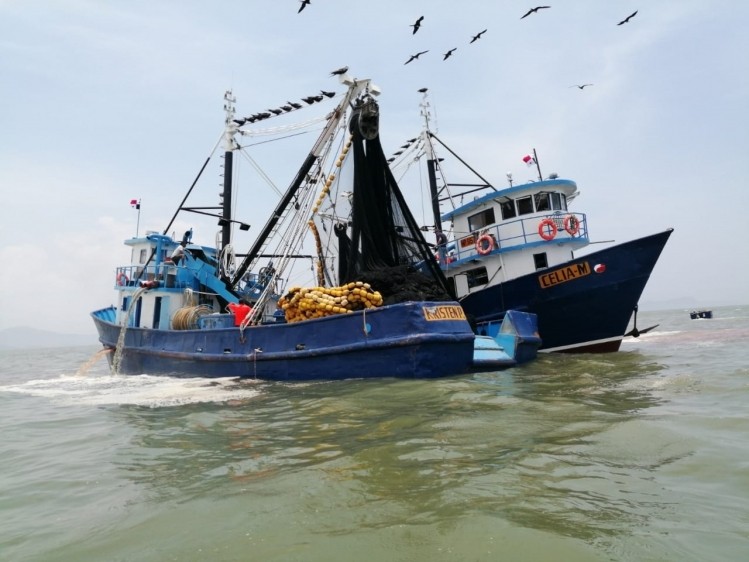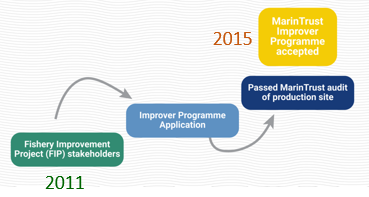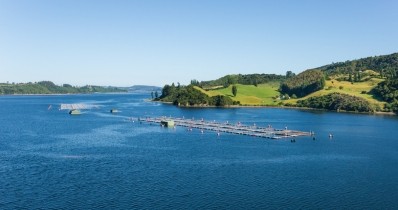Panamanian fishery and associated fishmeal factories secure MarinTrust certification

"Both sites in Panama are now certified following approval of the fishery and audit of the factories by third party certification bodies," said a spokesperson.
It is the first time ever that a fishery and its associated fishmeal and fish oil production plants have gained approval and certification following their journey on the MarinTrust IP.
While marine ingredients produced using accepted Fishery Improvement Project (FIP) raw material may be sold as a MarinTrust IP product, plants producing certified products can claim the MarinTrust certification and use the MarinTrust logo.
Improver program
The MarinTrust and its governing body committee became aware that despite the initial success of their Standard, a lot of marine ingredient producers failed to meet the criteria. Reasons for this included operational issues within a factory, or with raw materials and their associated fisheries. Many of these producers are based in Asia, where aquaculture production is growing rapidly.
Their solution was to develop a credible and robust structured programme of improvements for producers, in line with the MarinTrust Standard, to allow accepted Improver Programme factories to reach the greater prize, compability with the Standard, within a defined timeframe.
“Before entering into the FIP, the Panama small pelagics fishery was data poor, with inadequate records of effort or landings, and nothing known about its impacts on the ecosystem. No-one could say whether or not it was sustainable, but the market had started demanding third party proof of sustainability, so something needed to be done,” said Ernesto Godelman executive director of CeDePesca, the non-profit organization that initiated the project.
The first task was to undertake a gap analysis against the Marine Stewardship Council’s (MSC) international standard for sustainable fishing, which highlighted weak management in the fishery and the lack of information on status and environmental impacts. This set the groundwork for the gap analysis against the MarinTrust fishery assessment which began the journey towards MarinTrust IP recognition, he added.
Certification process
The process leading to MarinTrust certification is thorough and "ensures not only that marine ingredients come from non-IUU fisheries that are managed in accordance with the FAO Code of Conduct for Responsible Fisheries but also that production is carried out to high standards of safety and quality, with sufficient care given to the environment, workforce, and local community,” said Nicola Clark, impacts manager at MarinTrust.
Some of the main improvements made in this fishery include a new management plan and the setting of Total Allowable Catches (TACs), reported MarinTrust.
An onboard observer programme was also initiated which enabled the collection of information on the size and maturity of the target species and the ecosystem impacts on endangered species. This work revealed that the by-catch is very low, at under 5% of total catch, and the general impacts on different ecosystem components are minimal. As a result of the findings of the observers´ program, fishermen are regularly trained to release vulnerable species alive, said CeDePesca.
Once certified, factories are required to have annual surveillance audits as part of the three-year certification cycle.
The Panama small pelagics fishery mainly targets Pacific anchovy and Pacific thread herring. Pacific bumper is also caught, but makes up a very minor part of the catch, as per MarinTrust data.
Today, China, North America and countries neighboring Panama are the main market for the fishmeal produced from the factories linked to the fishery, with the raw material being used in both swine and aquaculture diets.
MarinTrust currently has six other active FIPs accepted onto the IP with associated production sites. "These are at different stages of their improvement journeys with the Ecuadorian small pelagics FIP being near the end of the IP process and undergoing its fourth year external review on progress," the spokesperson told us.









